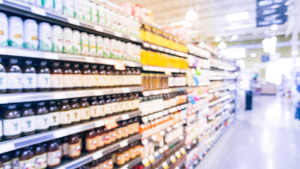Democrats accuse Kroger of using digital price tags to gouge consumersDemocrats accuse Kroger of using digital price tags to gouge consumers
Grocer refutes accusations made in letter from U.S. Sens. Elizabeth Warren and Bob Casey to Kroger CEO Rodney McMullen

U.S. Sens. Elizabeth Warren (D-Mass.) and Bob Casey (D-Pa.) have sent a letter to Kroger Chairman and CEO Rodney McMullen, accusing the company of using digital price tags to squeeze consumers.
The senators also issued a press release on Aug. 7, announcing they are investigating Kroger’s use of digital price tags and warning that the grocer’s use of “surge pricing” with the electronic shelving labels has led to “price gouging.”
While the press release headline accuses the grocery chain of gouging and “hurting customers,” it provides no proof that the practice is taking place.
Kroger responded to the letter stating in an email to Supermarket News that its business model aims “to lower prices over time so that more customers shop with us, which leads to more revenue that we then invest in lower prices, higher wages, and an even better shopping experience.”
“Everything we do is designed to support this strategy, and customers are shopping more with Kroger now than ever because we are fighting inflation and providing great value. Any test of electronic shelf tags is to lower prices more for customers where it matters most. To suggest otherwise is not true,” the company said in the email.
The inquiry, which includes more than a dozen questions to Kroger on how they’re using the technology, comes less than two weeks after the Federal Trade Commission and the Department of Justice announced they are launching an investigation into high grocery prices.
“We want to make sure that major businesses are not exploiting their power to inflate prices for American families at the grocery store,” said FTC Chair Lina Khan. “We’ll continue using all of our tools to expose and crack down on any underhanded tactics that companies may be using to raise prices on the basic things that Americans need the most.”
The letter to McMullen takes a less accusatory tone, noting that electronic shelving labels make it possible for grocers to engage in “dynamic pricing,” enabling them to raise or lower prices based on “weather, time of day or other transitory events.”
“Given these concerns, I write to request further information to better understand the justification for and risks of electronic shelving,” the letter states.
It also noted that grocery store use of ESL technology is growing. Kroger began deploying ESLs in 2018 and has since expanded its Enhanced Display for Grocery Environment (EDGE) Shelf technology to roughly 500 stores, as of 2023. Walmart is bringing ESLs to 2,300 locations by 2026, and Schnuck Markets plans to deploy the digital price tags at all of its 115 stores by 2025.
“In February 2024, Kroger began working with IntelligenceNode, a company that ‘use[s] AI and machine learning to provide dynamic pricing and market analytics solutions’ on its marketplace for third-party sellers,” the letter added.
The letter to Kroger voiced concerns about whether Kroger and Microsoft are protecting consumers’ data and gouging consumers.
“It is outrageous that, as families continue to struggle to pay to put food on the table, grocery giants like Kroger continue to roll out surge pricing and other corporate profiteering schemes,” the letter added.
About the Author
You May Also Like






